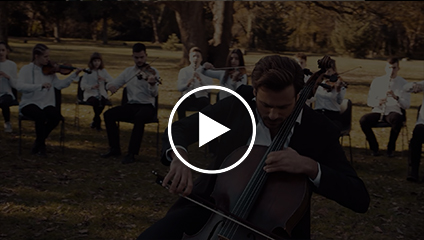Mystery Music
I will incline my ear to a proverb; I will express my riddle on the harp. Psalm 49:4 NASB
Riddle – Samson was tested. Solomon was asked. David made mention. But it never confronted Moses. What is it? A riddle (ḥîdâ), of course. “The ḥîdâ is an enigmatic saying, question, or story whose meaning must be determined by the audience.”[1] Long before we had game show hosts and Trivial Pursuits, we had entertaining riddles. Perhaps the most famous one in the West is the riddle presented to Oedipus: “What goes on four legs at dawn, two legs at noon, and three legs in the evening?” The Tanakh uses this word seventeen times, but in this verse it’s as strange as it could ever be.
אַטֶּה לְמָשָל אָזְנִי אֶפְתַּח בְּכִנּוֹר חִידָתִי
atah le-mashal azni af-tach be-kinnor hidati
How can a riddle be expressed on the harp?
Maybe we need to listen to Thelonious Monk.
For the sons of Korah, music speaks. But of course it does! It just doesn’t speak with words. How many times have you listened to some music, music without vocals, and been moved to tears or excited with joy or struck with remorse or felt chills down your spine. Music speaks to us in all sorts of emotional ways. Hollywood has understood this for a long time. There are hardly any silent scenes in the movies. Music sets the mood. Why else would it be essential to have “praise and worship” music in churches? A ḥîdâ is more than “an enigmatic saying.”
Every time—and I do mean every time—I hear this, I cry. I don’t know why, but I just do. It’s not rational. It’s real! Trying to explain that is a riddle.
Why does this music touch something inside me that brings forth such helplessness, such despair? What is it about this particular sound that stirs me to weep? Some long-forgotten trauma rises to the surface. I am overwhelmed, helpless before the score, swept into grief over something I no longer remember. But it’s there, buried so deeply in my unconscious that there are no longer any words. Perhaps there never were. Perhaps all that this riddle really does is touch the center of my feelings—my real “me.”
“We are controlled by feelings, not by logic, though we fondly imagine that we are being guided by our reason. What happens in fact is that reason supplies the arguments with which to justify our behavior. We appear to be logical, but are thoroughly illogical. That is one more contradiction.”[2]
“Man remains a mystery to himself, and to attempt to elucidate that mystery by delving into one’s mind is merely to increase its perplexing obscurity.”[3]
Do you suppose that some musical score, unique and particular to each one of us, really unlocks the desperation we have hidden away in those dark closets of our souls? We don’t control the sound. It penetrates beyond our rational defenses, despite our best efforts to imprison the flood of feelings. The riddle isn’t just that we are suddenly emotionally helpless. The riddle is why we tried not to be.
Did we imagine that God would be happier if we were always in control? Do you suppose that the Greek/Christian God of omnipotence, omniscience, and omnipresence has really been our fictitious jailer?
Topical Index: riddle, ḥîdâ, music, emotion, Psalm 49:4
[1] Yamauchi, E. (1999). 616 חוּד. R. L. Harris, G. L. Archer Jr., & B. K. Waltke (Eds.), Theological Wordbook of the Old Testament (electronic ed., p. 267). Chicago: Moody Press.
[2] Paul Tournier, The Meaning of Persons, p. 52.
[3] Paul Tournier, The Meaning of Persons, p. 66.





Absolutely beautiful and stirring masterpiece.
Many thanks!
This is huge! This not only helps me as I learn more of who I really am, but helps me understand others when in a dispute or argument. Hearing thru the logic! That is a riddle for me!